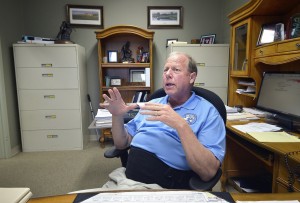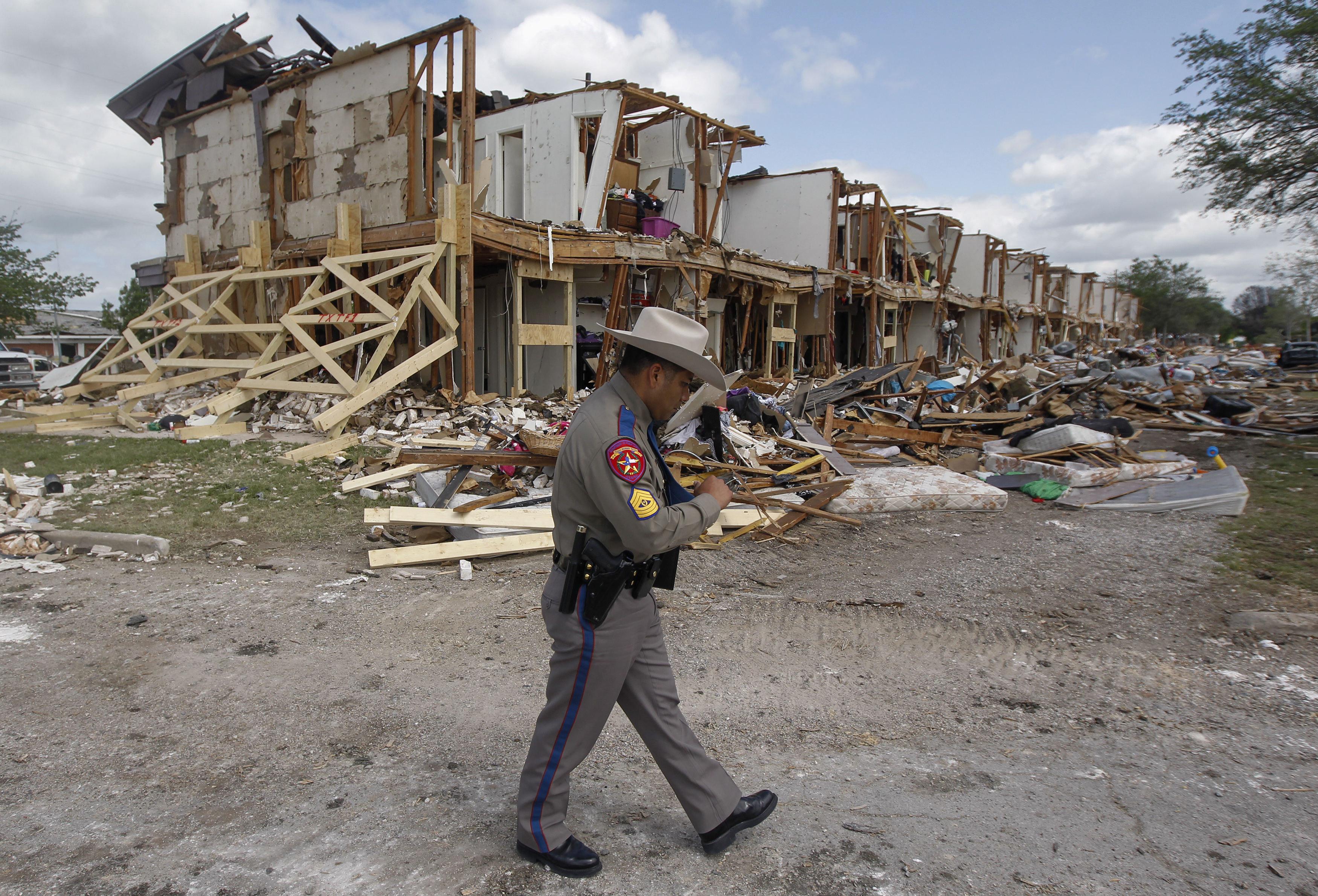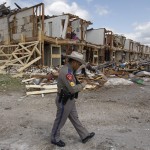Curious About Explosive Chemicals Near You? Texas Attorney General Says It’s Secret

Photo by Brendan Smialowski/Getty Images
Rulings from the Texas Attorney General Greg Abbott's Office say that homeland security concerns trump the public's right to know about dangerous chemicals in Texas .
Ever since a fertilizer plant blew up last year and killed 15 people in West, Texas, many Texans have wanted to know where dangerous chemicals are stored in their area. Until recently, it was pretty easy to find out. They could simply ask the Texas Department of State Health Services (DSHS). But a string of recent rulings from Texas Attorney General Greg Abbott now says that information should be kept confidential.
It’s a trend that has open government advocates and some local officials worried.
The rulings from Abbott, who is running for Governor, came to light after an ammonia nitrate storage building in Athens, Texas caught fire last month. WFAA, an ABC affiliate station in Dallas, requested data from the Department of State Health Services on the building. Instead of getting the data, reporters were presented with this ruling from Attorney General Abbott, saying it was confidential.
The ruling came after DSHS asked for the Attorney General’s opinion. The Department sought the opinion because of a string of earlier rulings Abbott provided to other state agencies, all determining that information on dangerous chemicals should not be shared.

Max Faulkner/Fort Worth Star-Telegram/MCT
West Mayor Tommy Muska says the AG's rulings keep the public too much in the dark.
In July 2013, the Attorney General’s Office told the Texas A&M University System that it should not release information on explosive chemicals. A month later, it issued a similar opinion to the Texas Commission on Environmental Quality (TCEQ). Since then, it has also issued a handful of similar rulings to the Texas Department of Insurance.
But the ruling given to the DSHS likely does the most to restrict access to the data. In Texas, that department keeps information on the location of toxic chemicals under the federal Emergency Planning and Community Right To Know Act. Traditionally, the department has shared that information.
“There’s a lot of reasons that people would want this information,” says Sean Moulton, with the Center for Effective Government. “Deciding where they might live, where they send their kids to school, where they work. Really, this kind of information needs to be in the public hands so they can make the most informed decisions.”
The ruling by Abbott says the locations of explosive and toxic chemicals must be kept confidential because of security concerns. The ruling states that information “is more than likely to assist in the construction or assembly of an explosive weapon or a chemical, biological, radiological, or nuclear weapon of mass destruction.”
But Tommy Muska, the Mayor of the town of West, where last year’s tragedy struck, believes there is greater danger in withholding the locations of potentially dangerous chemicals from the public. He hopes the state can find some middle ground that will keep the public informed.
“They’re worried it could get into the wrong hands,” he says. “I strongly feel, though, that the public, the 99 percent of good people out there, have a right to know what’s in their backyard.”


